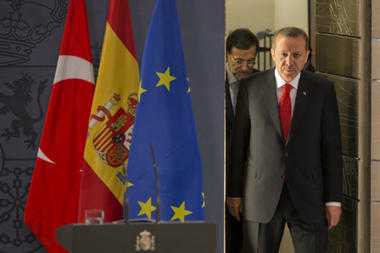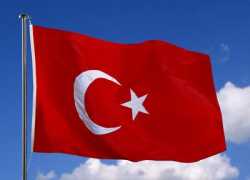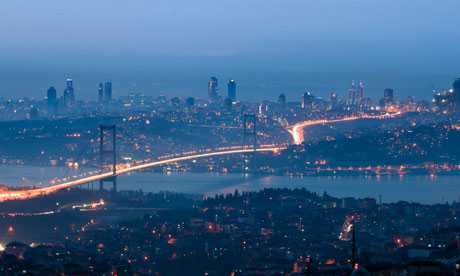Turkey is still yearning for EU membership
ANKARA LETTER: This proud city is struggling to understand why, despite its growth, it is still being held at arm’s length
It is one of the fastest-growing economies in the world; its capital has a larger population than Ireland and construction is booming to such an extent that skylines resemble those of the Celtic Tiger era. However, despite all this, Ankara is still negotiating Turkish membership of the European Union nearly 50 years after it first expressed interest in Europe.
First impressions of the Turkish capital can be disappointing to the foreign tourist, because at first glance it seems to comprise nothing more than concrete tower blocks, houses piled on top of each other, and roads where six lines of traffic squeeze into four lanes.
It’s a city where the net minimum wage is just €320 per month and yet petrol and diesel cost more than €2 per litre. Dozens of cranes populate the skyline and hundreds of multistorey buildings lie half-built, surrounded by hoardings promising prospective buyers not only an amazing apartment, but a better lifestyle.
It’s a city that forever seems to lie in the shadows of Istanbul in terms of population, tourism, architecture and economy, even though it’s the capital.
Yet despite all this, Ankara is an immensely proud city, one that struggles to understand the EU’s rejection.
Long association
The city began its long association with the project of European integration in 1963, when it signed the Ankara Association Agreement. The country’s application to accede the European Union was made in 1987, and it was officially recognised as a candidate for full membership in 1999. Since then Ankara has come a long way in public consciousness. Gone are the days when Istanbul seemed the only possible answer to the regular table quiz question: “what is the capital of Turkey?”
However, after more than two decades of trying, Ankara has all but given up on accession to the European Union, having faced annual rejections from France, Germany and Cyprus.
Along with the rest of the country, it has a high growth rate, a low unemployment rate, a booming construction industry and a rapidly developing manufacturing sector.
Thus the city’s population struggles to understand how the country – one where the average age is 29, one which lends money to the International Monetary Fund, one which is the world’s 18th largest economy – is still being denied EU membership.
The Turkish economy deserves more than what larger European countries and leading international rating agencies tell the world, according to Turkey’s minister for finance Mehmet Simsek.
“We would like to remain firmly anchored to Europe. I think we can add value to Europe,” he said.
Last year the Turkish economy grew by 8.8 per cent in real terms, one of the fastest rates in the world. In contrast, Europe only grew by 1.5 per cent last year.
Growing economy
The Turkish economy had been growing 17 per cent year on year in real terms, almost twice the Chinese growth rate, but the country tightened credit policy and introduced specific tax hikes to slow growth, Mr Simsek said.
The Turkish rate of unemployment totalling 8.5 per cent last year is also lower than the EU average which in August 2011 was 10.5 per cent.
These statistics show that Turkey would fulfil the Maastricht criteria for entry into the euro zone, unlike many member states, yet the country is still being denied entry by member states, which the Turks believe, are concerned about eastern influence in Europe.
Having tired of waiting to join the European Union, the city has decided to use its growing economic and political influence to establish its control over the region, assuming the role of an economic centre due to stable economic growth and strategic position.
However, while the country has strengthened trade ties between Middle Eastern and North African countries; the European Union is still seen as a lighthouse and beacon of hope for Turkey.
“Europe is still the best reference point for us for laws. Europe implies transformation for us, it implies reforms. Our country needs transformation. Europe ultimately gets a very reliable and strong neighbour,” Simsek says.
“I think much of Europe’s fears are based upon the fact Turkey is big. Big players don’t want their power diluted.”
via Turkey is still yearning for EU membership – The Irish Times – Sat, Dec 22, 2012.






